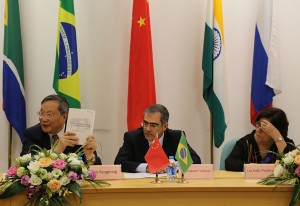The book is a product of a collaborative effort between Fudan University and FGV professors. It emphasizes the structural reforms implemented in Brazil in the early 1990s, when the country embraced trade liberalization, and, through a combination of policy reforms, managed to reduce external tariffs and the burden of traditional trade costs.
Nevertheless, as explained in the book, Brazil’s port and transportation infrastructure remained inefficient, with implications for logistics costs and trade competitiveness. The main challenge to increase public sector investment in this sector is the fact that the Brazilian government tax burden is already high and most of its budget is allocated in payroll expenses and social security. Challenges to increasing private sector investment in infrastructure include difficulties in the legal and regulatory framework.

For this reason, collaboration with other countries, such as China, can be an alternative. For being Brazil’s number one trading partner, China is interested in fomenting Brazil’s modernization in infrastructure sector and therefore promoting better business opportunities between the two countries. Resources from other institutions, such as the BRICS New Development Bank (NDB), could also help the rejuvenation of the Brazilian infrastructure sector.
Launched this year, and headquartered in Shanghai, the new bank will fund infrastructure and development projects in BRICS countries – Brazil, Russia, India, China and South Africa. The NDB will have an initial capital of USD 50 billion to be equally funded by the five members. The capital will be expanded to $100 billion within the next couple of years. First BRICS Bank projects are expected to be approved and come into force in April, 2016.